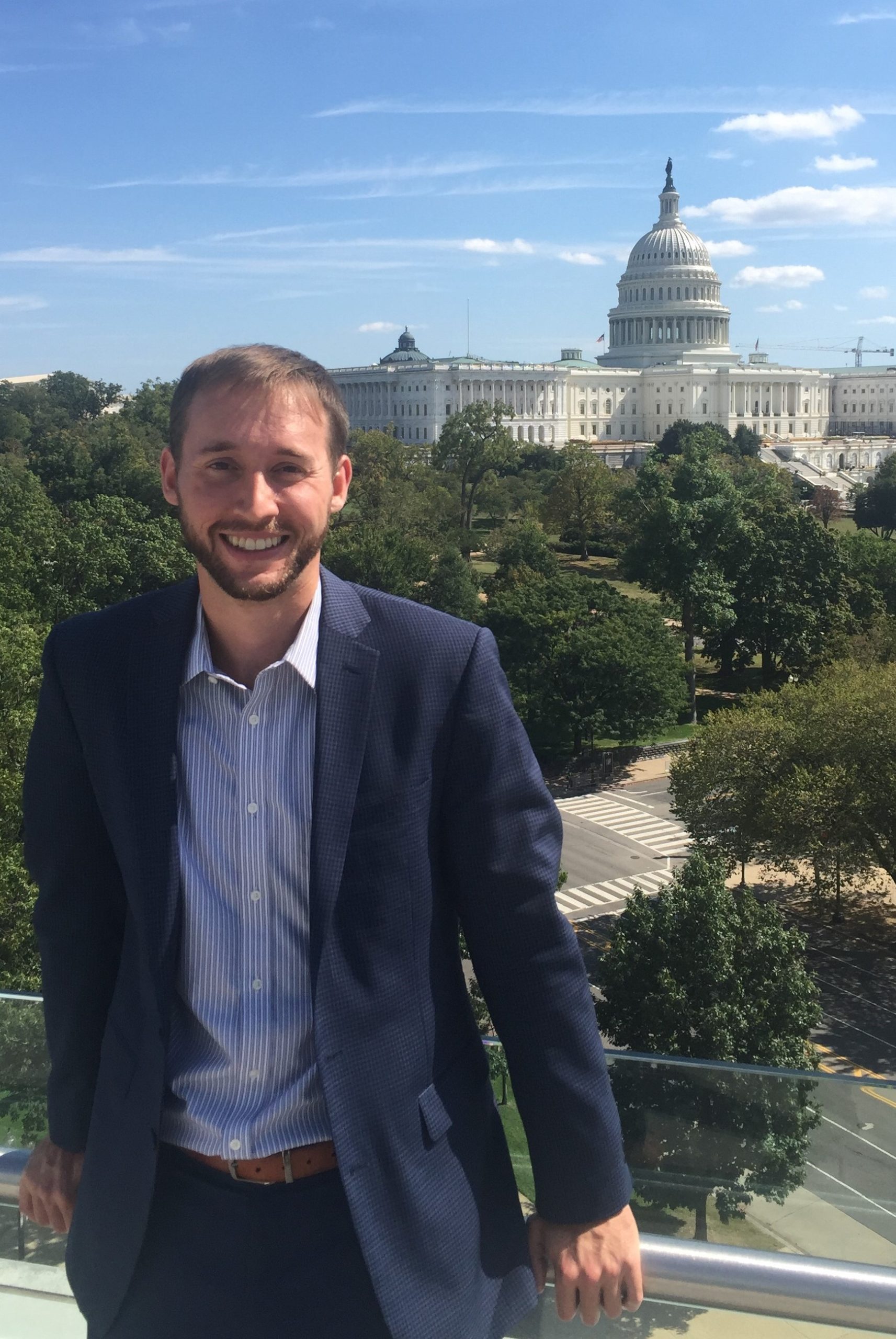There has been no shortage of books over the last half-decade reexamining the histories of populism, nationalism, and race in the United States to shed light on current events. Evangelical subculture has witnessed its own prodigious outpouring of books that raise questions about the American church’s role in racism, militarism, patriarchy, and other such issues receiving their present comeuppance. These are not mere intellectual excursions; they are often tied to activist aims to address some sort of glaring injustice in evangelicalism’s public witness.
Between the many issues pressing for thoughtful readers’ attention and the exhaustion induced by contemporary politics, Tracy McKenzie sets for himself an uphill battle in writing about the Founders and the American embrace of populism. Nevertheless, We the Fallen People: The Founders and the Future of American Democracy proves an exceedingly valuable read because the questions it raises are so timely. McKenzie beckons us toward a reformed Christian political witness, but shows that the path forward is the hard one of recognizing both our individual and collective corruption. Efforts to shortcut that reality do not ennoble our republic, but endanger it.
***
In 2013, Wheaton College history professor Tracy McKenzie stepped away from more academic writing to publish a book on that most quintessentially American of stories, the Pilgrim settlers’ first Thanksgiving. McKenzie sought to exemplify for the lay Christian reader the value of historical reflection as a Christian moral exercise distinct from, though dependent on, good historical scholarship. The First Thanksgiving details the story of its title, but it also self-consciously models how Christians should approach the study of history—and how they should not.
McKenzie articulates the value of historical complexity, observing that all too often popular Christian accounts slip into a “providentialist” mode in which the study of history becomes the story of God’s will unfolding, often in ways that favorably cast the historian’s ideological or nationalistic agenda. Thus, providential history reinforces the views and prejudices of its readers, and does so while giving the imprimatur of divine approval. Such tendentious views of history are not just poor scholarship, McKenzie observes, but harmful for American Christians and their public witness.
In his latest book, We the Fallen People, McKenzie takes on an even larger totem—the conviction that the moral intuition of the American electorate is the basis for our democratic flourishing. This belief is summarized in the phrase, “America is great because she is good,” a quotation repeated by countless American politicians, most of whom have attributed the sentiment to a nineteenth-century French aristocratic visitor to America, Alexis de Tocqueville.
McKenzie roundly debunks the idea that Tocqueville ever praised the American people’s virtue in such an unqualified way; quite the opposite, in fact. Both the American Founders as well as Tocqueville 50 years later were deeply skeptical that a majority of any country possessed the virtue and public mindedness to foster good government. The Founders had therefore designed a system of government that accepted a near-universal human tendency to act based on our own passions and self-interest. Though they created a democratic republic, the Founders did so not out of a trust in human goodness and wisdom, but out of a recognition that “We the People” are fallen. In creating a divided, multilayered set of institutions, with seemingly undemocratic layers like the Electoral College, McKenzie sensitives his readers to how differently the Founders thought about how to structure government in light of human nature compared to prevailing notions today.
From these foundational arguments, McKenzie explores what the Founders attempted to create in American democracy and how political attitudes had shifted by the second generation of American presidents, as epitomized by the “People’s Candidate,” Andrew Jackson. According to John Eaton, Jackson’s ally and eventual secretary of war, the president embodied what had always assured America’s liberties: “the good sense and sober reflection of the American people.” Though this was a far cry from what James Madison and Alexander Hamilton had articulated in The Federalist Papers, part of Jackson’s masterstroke was to present his democratic populism as an heirloom of the Founders rather than the rupture that it was.
After describing the contentious election of 1828, McKenzie traces Jackson’s rise from thwarted victim of Washington political machinations to the original “imperial president.” Two episodes from Jackson’s presidency are explored in detail. First, Jackson’s response to Georgian politicians who claimed Cherokee Nation land for white settlement, and second, his ongoing political fight over reestablishing the Second Bank of the United States. In both cases, McKenzie shows how Jackson legitimized his willingness to breach constitutional norms by exploiting his carefully constructed identity as tribune of the people. In the case of “Indian removal,” Jackson was successful in forcibly displacing the Cherokees despite the Supreme Court’s ruling in their favor because the electorate did nothing to counteract his policy; indeed, a majority of voters likely supported it. As putative champion of the common (white) voter, Jackson is shown to further write a now-familiar playbook in preventing the rechartering of the Second Bank of the US. In that instance, since his decision likely only appealed to a minority of voters, it was all the more important that he justify his action by demonizing the Bank and declaring, in place of Congress and the Supreme Court, his unilateral authority to determine what legislation could stand or fall. Parallels to more modern forms of the populist conceit are uncanny.
***
On a bigger historical canvas than the author’s previous book, a similar theme emerges that people, be they casual readers of history or actively engaged voters, are prone to hear what their itching ears wish to hear. In embracing a democratic faith, however, it is not that evangelicals simply lack nuance but that our political undertakings so often run contrary to our doctrine. Human nature’s untrustworthiness and corruption may seem straightforward enough. One may doubt if that many Christians could really have missed so basic a reality. After all, as G.K. Chesterton said, original sin is the one biblical doctrine that is empirically verifiable. Though McKenzie produces polling evidence to show the surprising number of American Christians who would affirm humanity’s innate goodness, the real crux of the issue is that Christians are so often capable of professing theological orthodoxy in one mode—acknowledging our individual fallenness—and yet fail to extend that view to its logical conclusion in the political realm. It is this reflexive individualistic moralism and inadequate political discipleship that prompts a concerned historian to intervene.
Among the book’s greatest strengths is how the author melds political analysis with historical narrative and theological reflection. McKenzie states upfront that he is writing this book with American Christians in mind. Having read various works by evangelical scholars, I can think of many instances where Christian historians reflect on the interplay between theology and praxis—politically, socially, or otherwise. But I can think of few instances where an academic historian writes so directly, almost devotionally, about how to live as Christians in light of history. This book becomes, in that sense, more than just an interesting study on the rise of populism in antebellum America. Rather, We the Fallen People tolls the church bells in alarm to call the flock toward a historical reexamination of how, in our political witness, we have failed to consistently apply our own doctrine in the societal sphere—and how we can fall prey to all manner of demagoguery as a result.
We the Fallen People does leave out some highly intriguing lines of inquiry. For example, McKenzie gives little exploration to the role of religious motivations or justifications in the electorate’s embrace of Jackson’s Democratic Party and incipient populism. McKenzie carefully avoids delving too deeply into questions about the nature of his key figures’ spiritual lives, which he recognizes is often fraught with wishful thinking by contemporary evangelical readers. But in the case of Jackson, better understanding his faith or how he employed Christian rhetoric to justify his political program would be enlightening. For some readers, the recurring pivots toward contemporary politics will be off-putting. Perhaps some of the parallels McKenzie draws between Jacksonian America and the Age of Trump could have been left to the reader to surmise. But part of the book’s thesis is that those responsible for educating the church should not abdicate their roles, especially in areas as significant as political engagement, so McKenzie is only practicing what he preaches.
As Tocqueville would have it, We the Fallen People is more than just a chronicle of early American political ideals, fascinating though such a history would be. McKenzie thinks long and hard about the Christian case for, and against, democracy for Christian readers today. His book is therefore somewhat deceiving—what starts as a historical investigation takes shape into a profound meditation on how to recognize human frailty in a democracy that flatters us with accolades about “the virtue of the people” when so often what we yearn for is power. As Tocqueville aptly said, “an idea that is clear and precise even though false will always have greater power in the world than an idea that is true but complex.” Tocqueville did not despair of America’s lack of virtue when he encountered it 200 years ago, because he knew that was only part of the story. There were virtues, mediating institutions, and voluntary associations that gave him hope for American democracy. Amid compounding political crises and the academic bias for dispassionate scholarship, McKenzie has decided as a historian that he has an obligation to enter into dialogue and do something about the widespread blindness to our venality. Those of us who share that concern would do well to read this book and consider how we can do the same.







 Sponsor a student for Christianity & National Security 2024
Sponsor a student for Christianity & National Security 2024